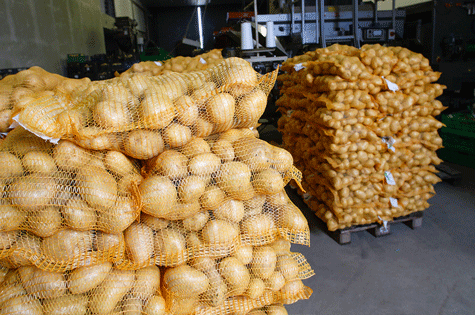Current Regulatory Challenges to Exporting to the European Union
By Francesco Montanari
With a population of over 500 million consumers, the European Union (EU) represents today a highly attractive market for food business operators interested in international trade. Yet, from a regulatory perspective, accessing the EU market can be a challenging task for food companies that are located outside the EU. There are a number of reasons for this.
Firstly, import requirements in the EU vary significantly depending on the type of product or product category considered. For example, products of animal origin—including meat, dairy, fish and derived products—can be imported into the EU only if the exporting country has been granted an EU authorisation and the products in question originate from production sites that the competent authorities of that country have approved. Conversely, products of plant origin, like fruits and vegetables, in principle, are not subject to specific authorizations or controls, unless they are associated with a specific public health risk, like mycotoxins, pesticide residues, salmonella and other pathogens that cause foodborne diseases.

Secondly, the EU is quite often portrayed as a global player with one of the highest food safety standards in the world. It also has a zero-tolerance policy on unauthorized GMOs, novel foods, additives, and the like. Enforcement authorities of EU countries regularly perform official audits of food intended for import, sharing their findings with each other. In such a context, the detection of serious non-compliances in certain food imports may lead to the adoption of specific import conditions or, in the worst-case scenario, of a trade ban by the EU. Generally, these measures apply to all exports from a given country, regardless of whether a business operator has a sound compliance record and/or offers additional guarantees to prove the safety of its products, such as the adherence to private certification schemes.
Furthermore, although the EU should work as a single market with the same food safety standards applying across its territory, this is not always the case. A few areas have not been subject to EU harmonization. They include microbiological criteria for certain food categories and consumer information regarding non-prepacked foods. They also include certain products—for instance, pasta, yoghurt and beer. Although EU countries are bound to recognise each other’s requirements, in practice, when non-compliances regarding national safety, quality and composition standards are detected, they are likely to be challenged by national enforcers. Furthermore, for products destined to the EU retail market, mandatory consumer information must be made available in the national language(s) of the country where the products are to be marketed. This stipulation includes safety aspects such as allergen or “use-by date” information. Multilingual labels represent a practical solution to ensure compliance with EU language requirements.
Food operators based outside the EU should be aware that the EU official controls framework is undergoing a major overhaul in an attempt to simplify the current regulatory regime. In accordance with new legislation that was passed in April this year (Regulation (EU) 2017/625), all types of imports will be subject to a common set of rules in a few years’ time, while goods requiring border surveillance will have to pre-notify dedicated Border Control Posts by means of a single document (Common Health Entry Document) and will be subject to different checks there, depending on the risk that they may pose to human, animal, or plant health, or the environment.
Against this background, while developing their export strategies, food companies willing to export to the EU must be fully aware of the complexity that the EU regulatory framework entails. They must also take into account that, especially for highly regulated imports, securing market access can hardly happen overnight and the full support of their national competent authorities is often a key element to their success. Finally, in order to be sure that their products fully comply with EU (and national) food safety requirements, foreign businesses should ideally seek out sound regulatory advice, besides relying on trusted business partners located in the EU as far as logistics and import procedures are concerned.
About the Author
Dr. Francesco Montanari is a food lawyer with an extensive experience at national and international level. Currently based in Portugal where he leads the Iberian branch of Arcadia International, he has previously worked for the British Retail Consortium and the European Commission. He advises EU and non-EU food businesses operating on EU food regulatory matters, besides performing studies and policy evaluation mainly for the European institutions.




